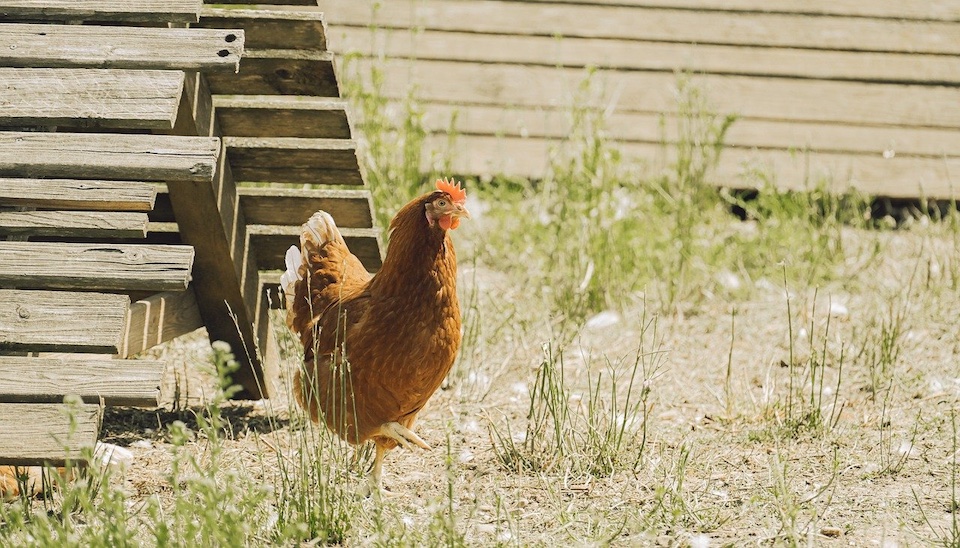How to calculate chicken coop size
How much room do chickens need? Calculating coop size
Are you wondering how much space you need to get chickens? You’ll be glad to know that most suburban blocks are big enough for a flock that will keep a small family in eggs for most of the year.
But you also need to calculate chicken coop size. The size of your chicken coop will determine how many chickens you can keep in the pen.
What is the short answer to how much room chickens need?
Most chicken-keeping resources recommend a minimum of:
- 1m2 coop space per chicken
- 3m2 run space per chicken
- 14 cm roost space per chicken (Learn more)
However, these recommendations are the bare minimum. The more space chickens have, the happier and healthier they are. And the happier and healthier your birds are, the less work they are for you!
We would never have less than 1m 2 coop space per bird (although commercial layers are stocked at 7 birds/m2 minimum!). And we’d only have 1m2 if the birds free-ranged all day and were let out early each morning.
However, there are a range of factors that can increase and decrease the amount of space that chickens need in a pen. Read the long answer for the nitty-gritty on space requirements and calculating chicken coop size.
What is the long answer to calculating chicken coop size?
Chickens descended from jungle fowl. Wild jungle fowl tend to have a range that averages about 2 acres per bird. However, the birds still spend most of the day in small groups and visit regular spots to rest, forage, and dust-bathe.
Because domestic chickens aren’t relying on their coop or run to provide all of their food, chickens don’t need 2 acres each. Luckily! But the more room chickens have, the happier they tend to be. But there are a lot of other factors that can influence space requirements as well.
Your chickens may need less room if they:
- Are a small breed like bantams or silkies
- Get on well (this is most common in flocks of 2-3 birds)
- Free-range and are only in the coop to nest and roost
- Are let out at dawn every morning
- Have lots of in-pen amusements such as swings, toys, mirrors, cabbage piñatas etc
- Have places to hide, forage and escape from bullies
- Are pets that get a lot of human attention
- Are rescue birds from a commercial laying operation (they’ll be used to living at 7 birds/m2 minimum, so a whole metre each would feel like a palace!)
Chickens may need more space if:
- They are a large or adventurous breed
- You have a mixed flock
- You keep a rooster
- They have a history of bullying
- They don’t have many toys or amusements
- There isn't much vegetation in the run, for example if it is just grass
- They forage for part of their diet
Chickens always need:
- Enough perch space (Learn more)
- Enough chicken nesting boxes (1 per 4 hens minimum) (Learn more)
- Ample space for dust-bathing (as they will all want to bathe at the same time of day) (Learn more)
- Ample, separated areas of shade – in a run that is mostly sunny, birds tend to spend all day in the shade available, which can lead to bullying
Environmental Considerations and Coop Design:
The local climate and terrain are crucial factors when planning your chicken coop's size and design. In areas with extreme weather conditions, such as intense heat or cold, chickens will require additional space inside the coop to ensure adequate ventilation and insulation. This helps maintain a stable and comfortable environment for the birds. Similarly, if your terrain is uneven or prone to flooding, consider an elevated or tiered design that provides dry and level areas for your chickens. Additionally, choosing the right materials for your coop can significantly affect its durability and the comfort of your chickens. Materials that offer good insulation properties and are easy to clean will contribute to a healthier and more sustainable living space for your flock.
By considering these environmental aspects, you can design a coop that not only meets the minimum space requirements but also enhances the overall well-being of your chickens. A well-designed coop ensures that your chickens are protected, comfortable, and happy, which can lead to a more productive and enjoyable chicken-keeping experience.
Happy chicken keeping!
Rachael at Dine a Chook



